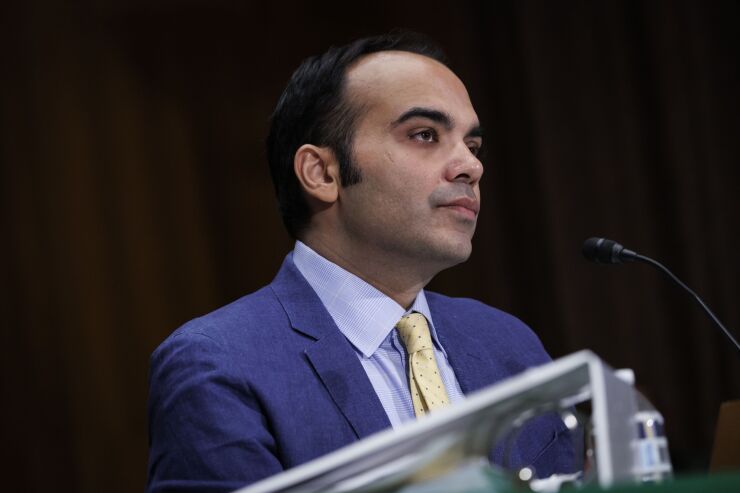
The Consumer Financial Protection Bureau issued a special report on unlawful junk fees in bank accounts, mortgage servicing and auto loans.
CFPB Director Rohit Chopra spoke on Wednesday at a White House
"One of the things we want to see in our economy is companies competing by offering the best product at the best price," Chopra said at
Most states have a prohibition on "unfair and deceptive practices," and Chopra urged state lawmakers to strengthen laws that "go after some of these fees."
In the 20-page
"Account holders could not reasonably avoid these surprise fees, irrespective of account disclosures," the CFPB said.
The president referred to so-called bank junk fees in remarks that echoed Rohit Chopra, the director of the Consumer Financial Protection Bureau, who has sought to crack down on excessive charges.
While a majority of financial institutions have stopped charging non-sufficient funds fees altogether, some banks continue to charge multiple non-sufficient funds fees for a single item, the CFPB said.
Servicers of auto loans are getting scrutiny for charging what the bureau called "inflated repossession fees," of up to $1,000, when the average cost to repossess a vehicle is $350.
The CFPB also is cracking down on fees to pay an auto loan and the kickbacks made to third-party processors. Auto loan servicers charged payment processing fees "that far exceeded servicers' costs," and payment processors collected the fees and "servicers then profited through kickbacks from the processors," the bureau said.
Mortgage servicers also are in the CFPB sights with examiners finding excessive late fees, fees for unnecessary property inspections and private mortgage insurance premium charges that were not owed by the homeowner. The CFPB said some mortgage servicers failed to waive fees for homeowners entering loss mitigation. Some servicers also charged homeowners late fees and other penalty fees that should have been waived because they were covered by forbearance protections during the pandemic.





